★★★½
“The dead want women.”
 Though it may be difficult to believe such a thing, the original Japanese title for this franchise of low-budget efforts was even more politically incorrect: Rape Zombie. If ever a title change was understandable… I went into this, largely on the basis of the covers, and braced for something awful. On that basis, I was pleasantly impressed: yes, this remains staggeringly offensive. Yet it’s clearly made by people who are familiar with, and love, zombie films. There are signs of actual brains being present – and not the kind normally found in the genre, being chewed on by the shambling antagonists. Five films have been made: for now, I’m covering the first three, which are the only ones available with subtitles [because, y’know, understanding the dialogue is so important here…]
Though it may be difficult to believe such a thing, the original Japanese title for this franchise of low-budget efforts was even more politically incorrect: Rape Zombie. If ever a title change was understandable… I went into this, largely on the basis of the covers, and braced for something awful. On that basis, I was pleasantly impressed: yes, this remains staggeringly offensive. Yet it’s clearly made by people who are familiar with, and love, zombie films. There are signs of actual brains being present – and not the kind normally found in the genre, being chewed on by the shambling antagonists. Five films have been made: for now, I’m covering the first three, which are the only ones available with subtitles [because, y’know, understanding the dialogue is so important here…]
The concept is more or less the standard one: a global outbreak of some kind of illness, turning the victims into mindless creatures, who attack any non-infected person they encounter. The difference here is that the disease affects only men, and turns them into sex-crazed rapists, who will sexually assault every woman they meet. [This does an amusing job of explaining the traditional slow, shuffling gait of the zombie – here, it’s because their pants are around their ankles.] Making things worse, their semen kills their victims. Needless to say, 50% of the population is less than happy with this situation, setting up a literal war of the sexes, with the now female-led military distributing weapons to its civilian colleagues, for the battle against those pesky rape zombies.
The sex is actually the least interesting thing here – though I note, up until the very end of part 3, there is apparently no such thing as a gay zombie, who goes after other men. What is far more entertaining is the shotgun social satire at play, with the makers turning the heat up on just about everyone. Feminists. Male rights activists. The media. Politicians. Women. Men (for once, “toxic masculinity” is not hyperbole). Social networking. Idol culture. For instance, the rapidly appointed female Prime Minister proclaims, “We’re only in this situation because we allowed men to run wild with their perverted fantasies!” – then high-tails it to Hawaii, immediately she finds out North Korea has launched a nuke at Japan. When that missile flies across the skies of Tokyo, everyone just whips out their phones to take video of it.
 There are four heroines in the series: two pairs, who team up following some initial distrust. Momoko (Kobayashi) ends up in hospital as the crisis breaks, after slashing her wrists at work. There, she’s befriended by nurse Nozomi (Ozawa), and when all hell breaks loose, the pair flee the hospital, and end up taking refuge in a Shinto shrine. There, they meet Kanae (Asami) and Tomoe (Aikawa), a battered housewife and a schoolgirl who have also been trying to survive the carnage. The actresses portraying all four, incidentally, are best known for their adult work, though seem to acquit themselves credibly enough with the (admittedly, fairly limited) acting required here.
There are four heroines in the series: two pairs, who team up following some initial distrust. Momoko (Kobayashi) ends up in hospital as the crisis breaks, after slashing her wrists at work. There, she’s befriended by nurse Nozomi (Ozawa), and when all hell breaks loose, the pair flee the hospital, and end up taking refuge in a Shinto shrine. There, they meet Kanae (Asami) and Tomoe (Aikawa), a battered housewife and a schoolgirl who have also been trying to survive the carnage. The actresses portraying all four, incidentally, are best known for their adult work, though seem to acquit themselves credibly enough with the (admittedly, fairly limited) acting required here.
The main…ah, thrust of the trilogy is that men’s vulnerability to the virus (or whatever it is), is dependent on their pre-epidemic sexual appetite and activity. So, the jocks and pretty boys of society are pretty much toast: who inherit the earth are the otaku. That word is probably best translated as the Japanese version of nerds/fanboys, though more derogatory in connotation there, with a particular lack of social skills. When things settle down, they form the “Akiba Empire”, blaming women for the collapse of society. They hunt the remaining “3D women” with the air of domesticated zombies. On the other side are the “Amazons”, consisting of women soldiers from the Japanese Self-Defense Forces, and other survivors, including our four heroines and scientists working on a cure.
There are a couple of further wrinkles to this scenario. Momoe ended up pregnant by her husband, but is also raped by a zombie, though survives. The resulting child – born remarkably quickly – is apparently seen as some kind of saviour by the zombies and th Akiba Empitre, who won’t attack it or Momoe. She ends up apparently driven insane, a crypto-divine figure to the otaku, worshipped as an idol – in the J-pop sense at least, performing excruciatingly bad (deliberately, I sense) musical routines for them. Meanwhile, Tomoe – spoiler – dies at the end of part one, but comes back in two and three as an American combat robot, complete with laser eyes and lightning-producing fingers. She’s sent to Japan, both to gather data and carry out something called “Project Herod”. Which is what you would expect: part three ends in a cliff-hanger, with her and Momoe in a face-off.
 It would have been very easy for this to simply be a porn film with zombies in it, which I’m sure exist. As I hope the above makes clear, it isn’t. Horror fans will have fun spotting the riffs on other genre entries, such as the twist on Return of the Living Dead where a captive zombie is quizzed to its motivation: the answer here, naturally, being “More… pussy.” [As an aside, certain words are bleeped out on the Japanese soundtrack, which seems surprisingly prurient, given the nature of these films!] The second also introduces Shinji, a non-otaku seemingly unaffected by the epidemic, and his girlfriend, Maki; he becomes a key part of the scientific research, though it turns out his immunity isn’t quite what it seems. Despite the copious nudity, it all feels not dissimilar to George Romero’s Day of the Dead, located at the shadowy nexus of science and the military-industrial complex.
It would have been very easy for this to simply be a porn film with zombies in it, which I’m sure exist. As I hope the above makes clear, it isn’t. Horror fans will have fun spotting the riffs on other genre entries, such as the twist on Return of the Living Dead where a captive zombie is quizzed to its motivation: the answer here, naturally, being “More… pussy.” [As an aside, certain words are bleeped out on the Japanese soundtrack, which seems surprisingly prurient, given the nature of these films!] The second also introduces Shinji, a non-otaku seemingly unaffected by the epidemic, and his girlfriend, Maki; he becomes a key part of the scientific research, though it turns out his immunity isn’t quite what it seems. Despite the copious nudity, it all feels not dissimilar to George Romero’s Day of the Dead, located at the shadowy nexus of science and the military-industrial complex.
Overall, the trilogy manages to cram in more invention than entire later seasons of The Walking Dead. It’s especially impressive considering each film runs barely an hour – less if you discount the “Previously…” opener and closing credits. I’m not entirely convinced there needs to have been five of these films; with editing, you could likely condense them all into two, maybe two and a half, hours and lose little or no impact. There are certainly times where the intent far outstrips the available resources, to an almost painful degree, and I’m no fan of the CGI splatter which is used more often that I’d like. It remains a rare case where exploitation comes with actual smarts, and that’s a combination you just don’t see very often.
Dir: Naoyuki Tomomatsu
Star: Saya Kobayashi, Alice Ozawa, Yui Aikawa, Asami
a.k.a. Rape Zombie
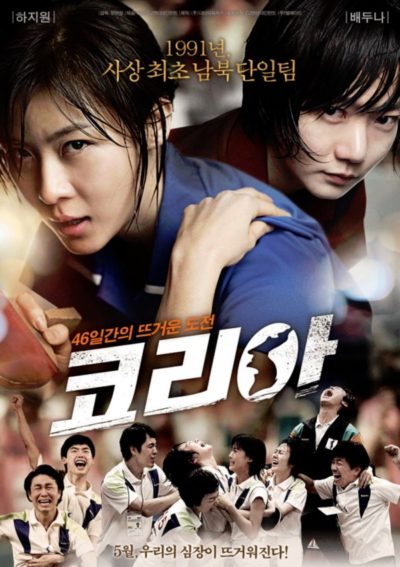 After the bombing of a South Korean jet by North Korean agents in 1987, relations between the two nations sank to perilously low levels. In an effort to help mend fences, the countries agreed to join forces and send a unified squad to the 1991 World Table Tennis Championship in Japan, to take on the all-powerful Chinese. The process was not without its bumps, as the South’s star player, Hyun Jung-hwa (Ha), and her counterpart in the North, Ri Bun-hui (Bae), struggle to overcome their differences and become a cohesive doubles partnership. Their respective coaches (Park and Kim) also have to learn to navigate shoals both sporting and political on the way to the gold medal match in Tokyo.
After the bombing of a South Korean jet by North Korean agents in 1987, relations between the two nations sank to perilously low levels. In an effort to help mend fences, the countries agreed to join forces and send a unified squad to the 1991 World Table Tennis Championship in Japan, to take on the all-powerful Chinese. The process was not without its bumps, as the South’s star player, Hyun Jung-hwa (Ha), and her counterpart in the North, Ri Bun-hui (Bae), struggle to overcome their differences and become a cohesive doubles partnership. Their respective coaches (Park and Kim) also have to learn to navigate shoals both sporting and political on the way to the gold medal match in Tokyo.




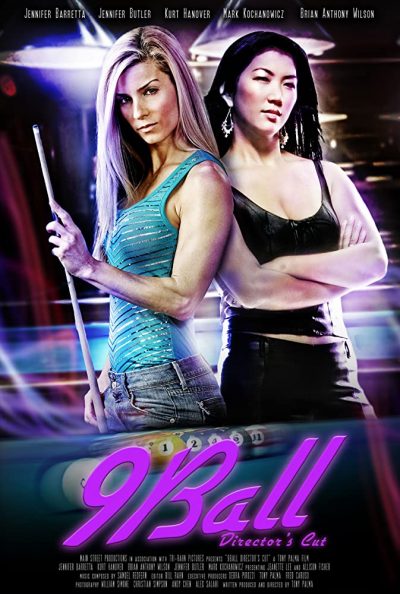 Oh, dear. There’s part of me which thinks this is what you get when you try and make actors out of pool players. For the star here, Barretta, is one of the top women cue artists in the world. She’s joined here by cameos from a couple of bigger pool stars i.e. people even I’ve heard of, in Jeanette ‘The Black Widow’ Lee and Allison Fisher, and you can’t really expect much out of any professional sportswomen, in terms of acting ability. However, she isn’t that bad, though this may just be relative to some of her fellow cast members. And, to be fair to the actors here, you could be an Oscar-winner, and still not be able to do anything with the wretched script, which is little more than a parade of cliches, when not being a shameless advert for the American Poolplayers Association and its leagues.
Oh, dear. There’s part of me which thinks this is what you get when you try and make actors out of pool players. For the star here, Barretta, is one of the top women cue artists in the world. She’s joined here by cameos from a couple of bigger pool stars i.e. people even I’ve heard of, in Jeanette ‘The Black Widow’ Lee and Allison Fisher, and you can’t really expect much out of any professional sportswomen, in terms of acting ability. However, she isn’t that bad, though this may just be relative to some of her fellow cast members. And, to be fair to the actors here, you could be an Oscar-winner, and still not be able to do anything with the wretched script, which is little more than a parade of cliches, when not being a shameless advert for the American Poolplayers Association and its leagues.
 Perhaps I just expected more from the combination of martial artist Takeda (High-Kick Girl, Karate Girl) and Iguchi (Mutant Girls Squad, The Machine Girl). While this has its moments, it falls well short of the best works of either star or director, delivering neither the action nor the insanity, of which I know both are capable. The set-up is fine. Takeda plays Keiko, the daughter of a sushi master, who leaves home after being told by her father she’ll never amount to anything. She gets a job working in a Japanese hot springs inn, and isn’t much good at that either.
Perhaps I just expected more from the combination of martial artist Takeda (High-Kick Girl, Karate Girl) and Iguchi (Mutant Girls Squad, The Machine Girl). While this has its moments, it falls well short of the best works of either star or director, delivering neither the action nor the insanity, of which I know both are capable. The set-up is fine. Takeda plays Keiko, the daughter of a sushi master, who leaves home after being told by her father she’ll never amount to anything. She gets a job working in a Japanese hot springs inn, and isn’t much good at that either.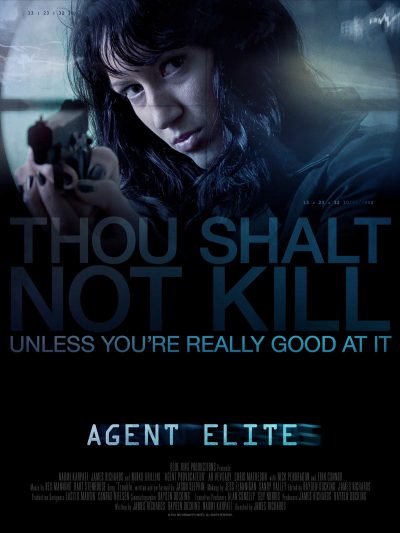
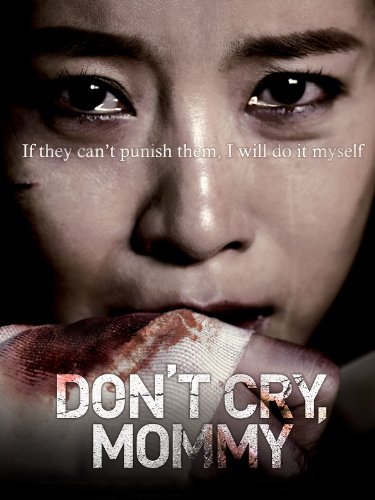 I say that, since this Korean film appears to have been at least a partial inspiration for not one, but two Bollywood films which were recently reviewed here:
I say that, since this Korean film appears to have been at least a partial inspiration for not one, but two Bollywood films which were recently reviewed here: 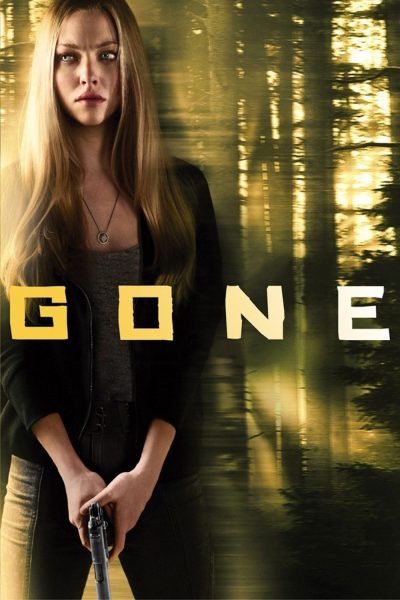 The life of Jill Conway (Seyfried) is slowly returning to somewhat normal, following her abduction by a serial killer in the Pacific Northwest. She was held in a forest pit, and barely managed to escape with her life. However, the lack of physical evidence and a history of mental health problems, helped cause the authorities not to believe her story. When Jill’s sister Molly vanishes, she’s certain the same killer is responsible, and when the police again fail to take her seriously, begins investigating herself. But when the cops find out this former mental patient is packing heat, Jill becomes a fugitive herself.
The life of Jill Conway (Seyfried) is slowly returning to somewhat normal, following her abduction by a serial killer in the Pacific Northwest. She was held in a forest pit, and barely managed to escape with her life. However, the lack of physical evidence and a history of mental health problems, helped cause the authorities not to believe her story. When Jill’s sister Molly vanishes, she’s certain the same killer is responsible, and when the police again fail to take her seriously, begins investigating herself. But when the cops find out this former mental patient is packing heat, Jill becomes a fugitive herself. I have to start off with an important confession: I am not a gamer. I’ve never really been one. I might have played… two computer games in my entire life: “Tomb Raider 2” and “No-one Lives Forever 2”. That very special thing computer gamers experience when in front of the consoles? I’ve never felt it, it never got me. But then, I was born in the mid-70s, and this could be the territory of another generation. So maybe I’m not even qualified to evaluate a movie which was based on a computer game. On the other hand, I’m not reviewing a game here, but a film – and I think I know a fair bit about them! Hopefully, I get the details right.
I have to start off with an important confession: I am not a gamer. I’ve never really been one. I might have played… two computer games in my entire life: “Tomb Raider 2” and “No-one Lives Forever 2”. That very special thing computer gamers experience when in front of the consoles? I’ve never felt it, it never got me. But then, I was born in the mid-70s, and this could be the territory of another generation. So maybe I’m not even qualified to evaluate a movie which was based on a computer game. On the other hand, I’m not reviewing a game here, but a film – and I think I know a fair bit about them! Hopefully, I get the details right. The story was smarter than I thought it would be, having ordered the used DVD to a low price, and knowing virtually nothing about the “Dragon Age” universe. To be honest, I
The story was smarter than I thought it would be, having ordered the used DVD to a low price, and knowing virtually nothing about the “Dragon Age” universe. To be honest, I  Though it may be difficult to believe such a thing, the original Japanese title for this franchise of low-budget efforts was even more politically incorrect: Rape Zombie. If ever a title change was understandable… I went into this, largely on the basis of the covers, and braced for something awful. On that basis, I was pleasantly impressed: yes, this remains staggeringly offensive. Yet it’s clearly made by people who are familiar with, and love, zombie films. There are signs of actual brains being present – and not the kind normally found in the genre, being chewed on by the shambling antagonists. Five films have been made: for now, I’m covering the first three, which are the only ones available with subtitles [because, y’know, understanding the dialogue is
Though it may be difficult to believe such a thing, the original Japanese title for this franchise of low-budget efforts was even more politically incorrect: Rape Zombie. If ever a title change was understandable… I went into this, largely on the basis of the covers, and braced for something awful. On that basis, I was pleasantly impressed: yes, this remains staggeringly offensive. Yet it’s clearly made by people who are familiar with, and love, zombie films. There are signs of actual brains being present – and not the kind normally found in the genre, being chewed on by the shambling antagonists. Five films have been made: for now, I’m covering the first three, which are the only ones available with subtitles [because, y’know, understanding the dialogue is  There are four heroines in the series: two pairs, who team up following some initial distrust. Momoko (Kobayashi) ends up in hospital as the crisis breaks, after slashing her wrists at work. There, she’s befriended by nurse Nozomi (Ozawa), and when all hell breaks loose, the pair flee the hospital, and end up taking refuge in a Shinto shrine. There, they meet Kanae (Asami) and Tomoe (Aikawa), a battered housewife and a schoolgirl who have also been trying to survive the carnage. The actresses portraying all four, incidentally, are best known for their adult work, though seem to acquit themselves credibly enough with the (admittedly, fairly limited) acting required here.
There are four heroines in the series: two pairs, who team up following some initial distrust. Momoko (Kobayashi) ends up in hospital as the crisis breaks, after slashing her wrists at work. There, she’s befriended by nurse Nozomi (Ozawa), and when all hell breaks loose, the pair flee the hospital, and end up taking refuge in a Shinto shrine. There, they meet Kanae (Asami) and Tomoe (Aikawa), a battered housewife and a schoolgirl who have also been trying to survive the carnage. The actresses portraying all four, incidentally, are best known for their adult work, though seem to acquit themselves credibly enough with the (admittedly, fairly limited) acting required here. It would have been very easy for this to simply be a porn film with zombies in it, which I’m sure exist. As I hope the above makes clear, it isn’t. Horror fans will have fun spotting the riffs on other genre entries, such as the twist on Return of the Living Dead where a captive zombie is quizzed to its motivation: the answer here, naturally, being “More… pussy.” [As an aside, certain words are bleeped out on the Japanese soundtrack, which seems surprisingly prurient, given the nature of these films!] The second also introduces Shinji, a non-otaku seemingly unaffected by the epidemic, and his girlfriend, Maki; he becomes a key part of the scientific research, though it turns out his immunity isn’t quite what it seems. Despite the copious nudity, it all feels not dissimilar to George Romero’s Day of the Dead, located at the shadowy nexus of science and the military-industrial complex.
It would have been very easy for this to simply be a porn film with zombies in it, which I’m sure exist. As I hope the above makes clear, it isn’t. Horror fans will have fun spotting the riffs on other genre entries, such as the twist on Return of the Living Dead where a captive zombie is quizzed to its motivation: the answer here, naturally, being “More… pussy.” [As an aside, certain words are bleeped out on the Japanese soundtrack, which seems surprisingly prurient, given the nature of these films!] The second also introduces Shinji, a non-otaku seemingly unaffected by the epidemic, and his girlfriend, Maki; he becomes a key part of the scientific research, though it turns out his immunity isn’t quite what it seems. Despite the copious nudity, it all feels not dissimilar to George Romero’s Day of the Dead, located at the shadowy nexus of science and the military-industrial complex. After reading some particularly scathing reviews of this, e.g. “stunningly atrocious”, I was braced for something
After reading some particularly scathing reviews of this, e.g. “stunningly atrocious”, I was braced for something